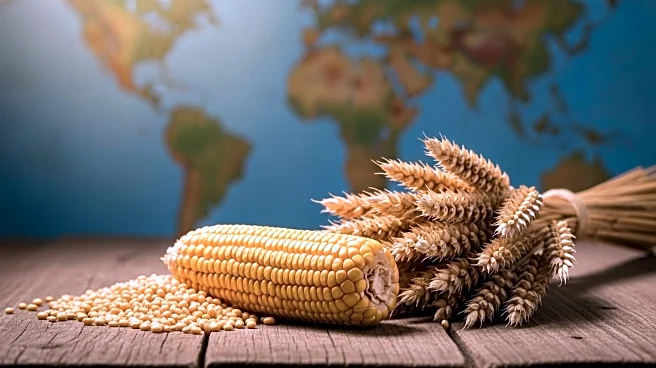What's Happening?
Corn and soybean futures have declined as the U.S. harvest progresses, with concerns about demand affecting prices. The Department of Agriculture reports that 18% of U.S. corn and 19% of soybeans have been harvested, slightly trailing the five-year average. Despite good crop conditions, demand concerns persist, particularly with China shifting beef imports from the U.S. to Australia. Wheat export inspections have decreased week-to-week, while corn and soybean assessments have increased. Windy and dry conditions in South Dakota are raising wildfire risks, adding to agricultural challenges.
Why It's Important?
The decline in agricultural futures reflects broader market uncertainties, including demand shifts and environmental factors. China's reduced purchases of U.S. soybeans and increased imports from Australia highlight changing trade dynamics that could impact U.S. agricultural exports. The weather conditions in South Dakota pose additional risks to crop yields and safety, potentially affecting supply and prices. These developments underscore the need for strategic responses to trade and environmental challenges in the agricultural sector.
What's Next?
As the harvest continues, U.S. farmers may face ongoing demand challenges, particularly with China diversifying its import sources. The agricultural sector may need to explore new markets and strategies to maintain export levels. Weather conditions in South Dakota could exacerbate risks, requiring monitoring and potential interventions to mitigate wildfire threats. Policymakers and industry leaders may need to address trade and environmental issues to support agricultural stability.
Beyond the Headlines
The shift in trade dynamics with China highlights the complexities of international agricultural markets and the need for adaptive strategies. Environmental risks, such as wildfires, emphasize the importance of sustainable practices and preparedness in agriculture. These factors contribute to the broader narrative of resilience and innovation in the face of global challenges.











